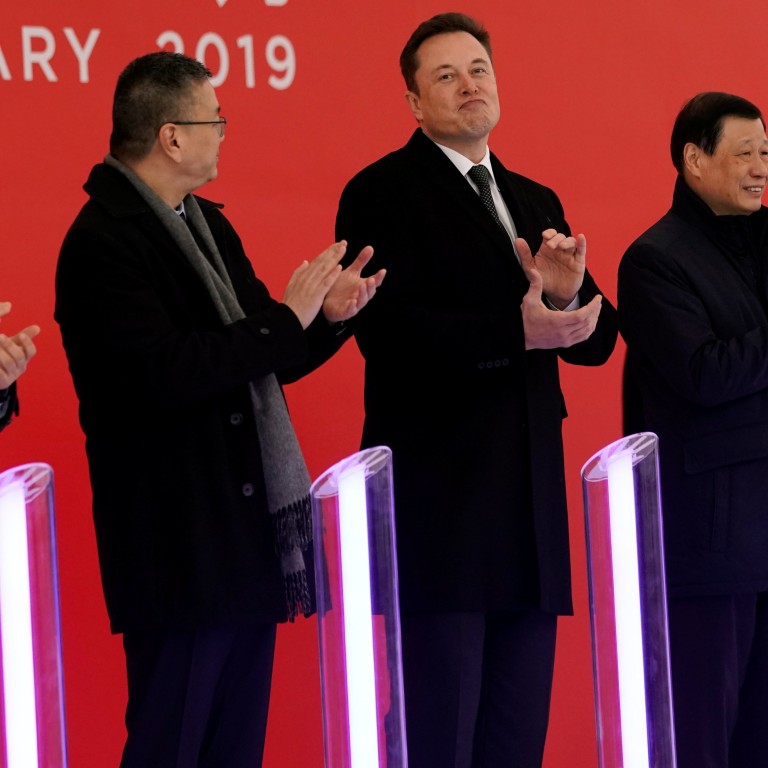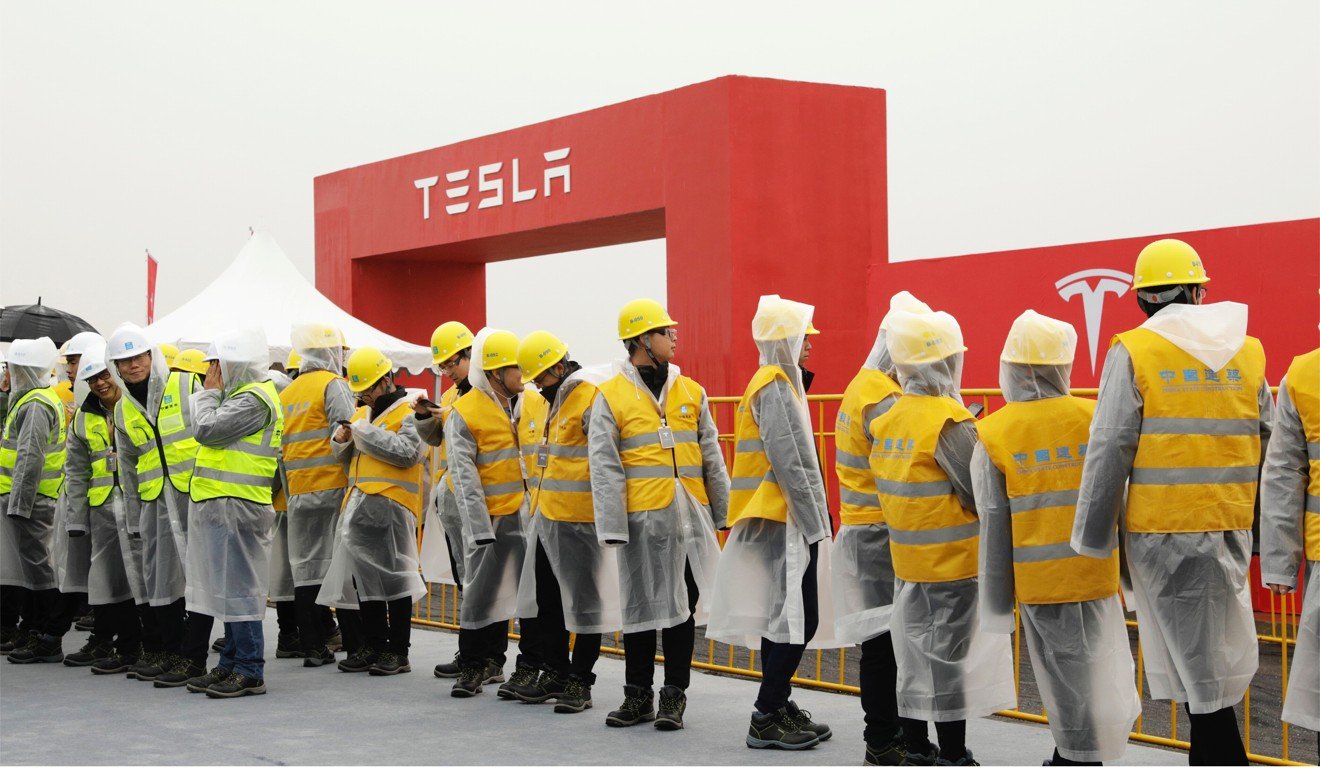
Tesla to produce cheaper versions of Model 3 electric cars in Shanghai, taking the competition to would-be ‘Tesla killers’
- Construction of its Gigafactory 3 takes off three months after it secured land site in Shanghai
- Factory will produce 500,000 cars annually when in full operation
Tesla has got off to a quick start to build affordable cars for Chinese customers after the US’ bestselling electric carmaker broke ground for its Shanghai plant on Monday with chief executive Elon Musk announcing the plan to start production of its Model 3 by the end of 2019.
The speed in which the US$5 billion project has taken off underscores China’s pressing need to bring to bear mega foreign invested projects as the country grapples with its slowest economic growth in a decade.
Tesla urges tariff exemption for Chinese-made computer car ‘brain’
Construction begins just three months after Tesla secured a land parcel at Lingang, Shanghai for the Gigafactory 3, its first plant outside the United States.
The factory in Shanghai will produce “affordable versions of 3/Y for Greater China,” Musk said on Twitter before the groundbreaking ceremony, adding that higher-priced models would be built in the US.
Wu Qing, a vice mayor of Shanghai, said the Tesla factory, the largest foreign direct investment project on record in Shanghai, was progressing on a rapid pace with the local government’s support as Shanghai looked to enhance its manufacturing might.
Gigafactory 3 was expected to produce around 3,000 Model 3 vehicles a week in the initial phase, ramping up to 500,000 vehicles per year when it became fully operational, Tesla said in a statement.
Tesla’s US-made cars are now subject to a 15 per cent tariff in the mainland after Beijing rolled back an extra 25 per cent tariff it slapped on US car imports for three months from January 1.
A Model 3 car now sells for 499,000 yuan (US$73,000) in the mainland.
China agrees to lower import tariff on US cars for three months
But a locally-produced Tesla car, with reductions in manufacturing and logistics costs on top of the exempted import tariff, is expected to cost as low as 300,000 yuan, a level that could attract thousands of mainland customers.
“Cars priced between 300,000 and 400,000 yuan are popular among wealthy middle-class mainlanders,” said Guo Zhipeng, a senior executive with an investment company who is also a Tesla fan. “I will definitely buy a Tesla as my first electric car. I just need to wait for a while to buy the locally-produced car.”
In July, Tesla raised the prices of the Model 3 and the Model Y by about 20 per cent in the mainland after Beijing slapped an additional 25 per cent tariff on American-made vehicles, a retaliatory measure against the US administration as trade tensions between the two countries escalated.

In October, the company paid 973 million yuan to purchase a 860,000-square-metre land parcel at Lingang, ahead of China scrapping the 50 per cent foreign ownership cap on production plants for vehicles powered by alternative energy amid the tit-for-tat US-China trade war.
With the ownership restriction removed, Tesla became the first foreign carmaker to set up a wholly-owned new-energy vehicle (NEV) factory in the mainland.
China is the world’s largest auto and NEV market, with Beijing aspiring to become the global NEV leader with technologies that meet the highest international standards by 2025.
NEV sales in the mainland jumped 75.6 per cent in the first 10 months of 2018 from a year earlier, hitting 860,000 units.
A clutch of mainland electric car start-ups such as Nio and Xpeng Motors are revving up production and development of their own models to woo local customers, taking advantage of the government’s heavy subsidies to bolster sales of NEVs as a way of protecting the environment.

